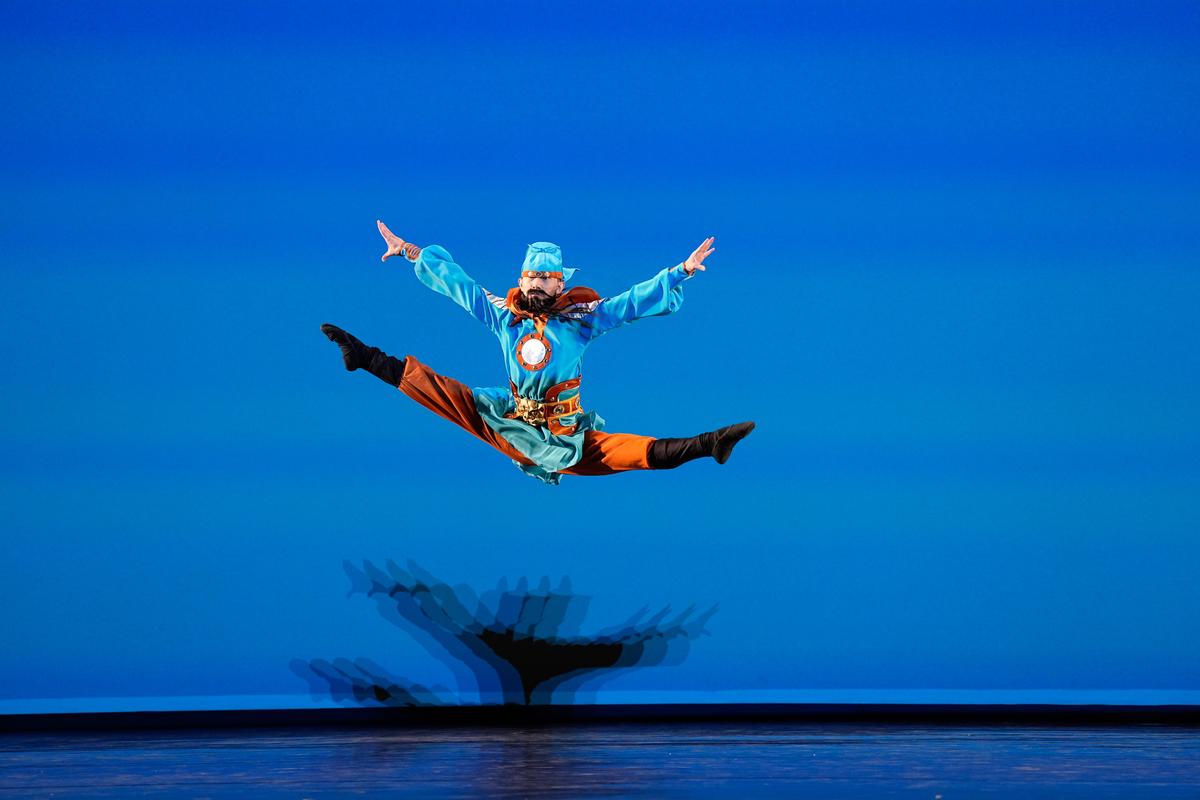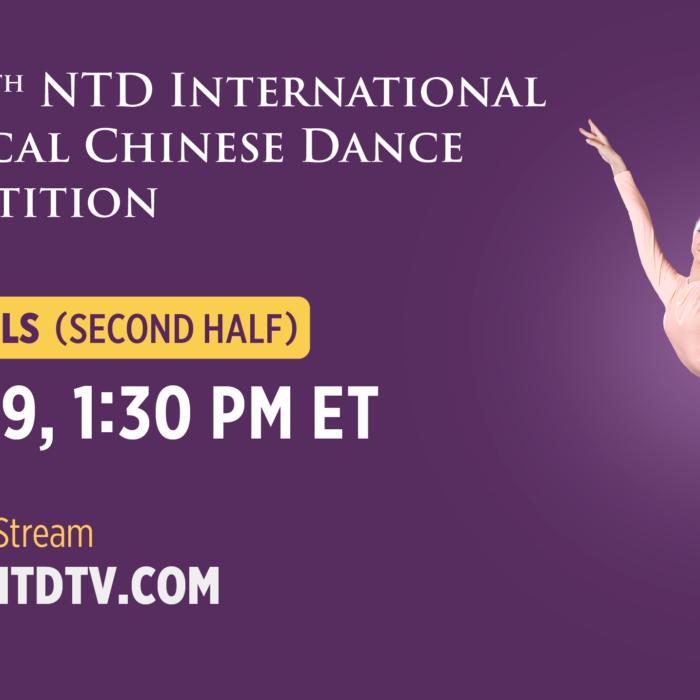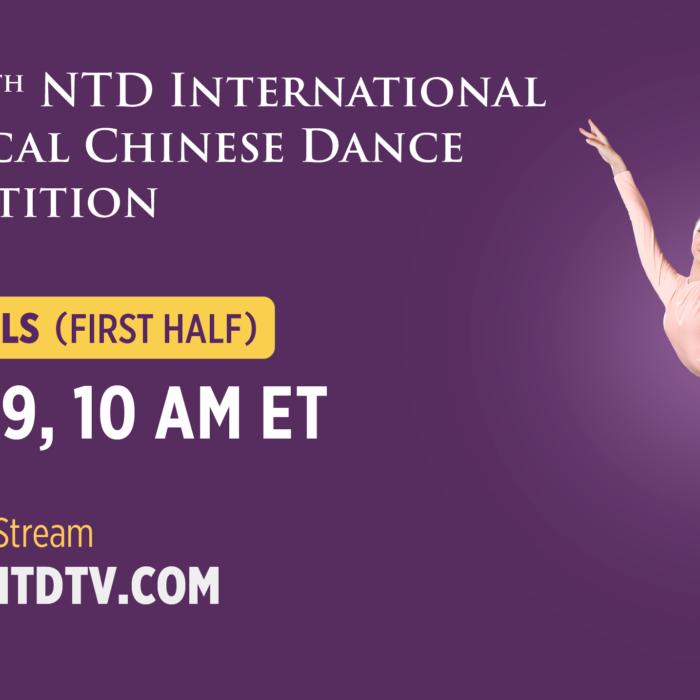At the 10th NTD International Classical Chinese Dance Competition in Purchase, New York, dancers shared their passion for the ancient art form and what drives them to excel.
The competition is part of a series of events NTD hosts in its mission to support traditional culture, placing emphasis on “pure beauty and authenticity” in its judging of classical Chinese dance. Dancers explained that understanding traditional Chinese culture is paramount to being able to perform classical Chinese dance well.
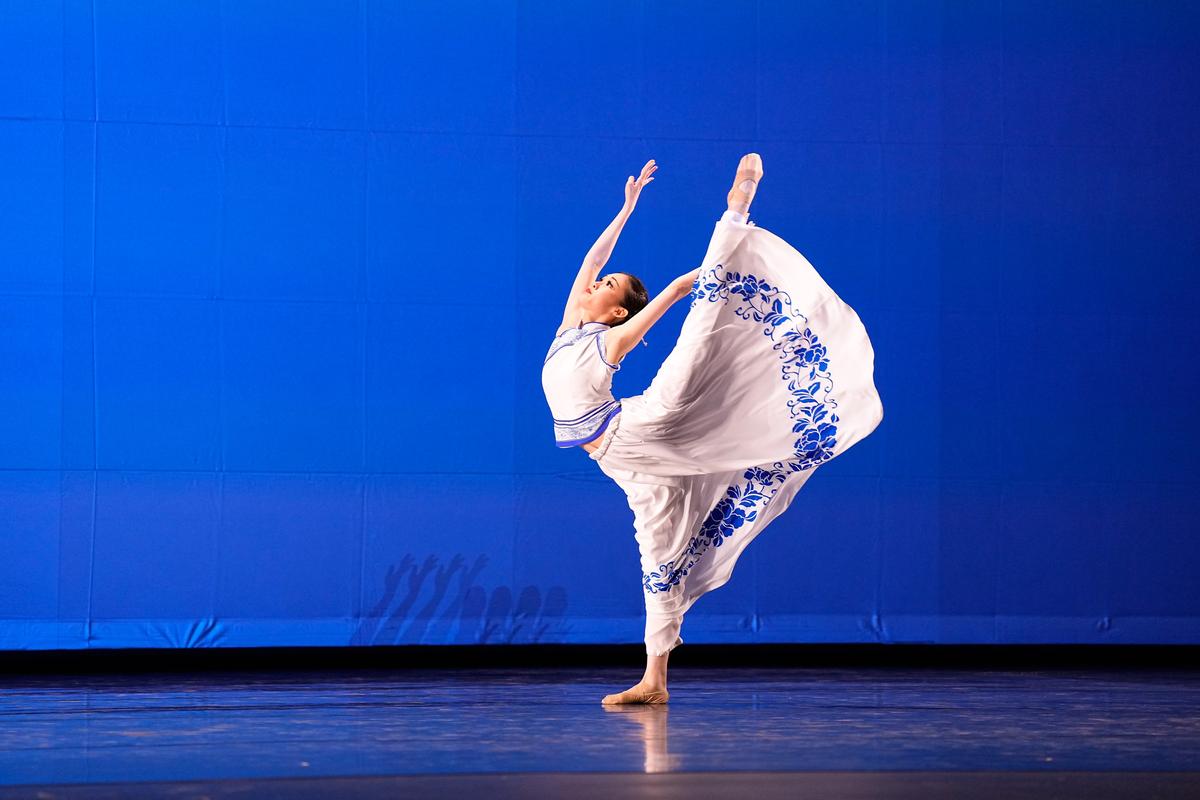
If you were able to read a Shakespearean sonnet with perfect pacing and enunciation, without a single syllable out of place, but had no idea what it meant, the performance would come off as dry and stiff, and even an audience who knew nothing about Shakespeare could tell.
It’s the same with classical Chinese dance—an art form rooted in traditional culture five millennia deep, and every gesture or turn of the head is backed with meaning. If a dancer is without a thorough understanding of the culture, they can’t bring it to life.
Before communism took power in China 75 years ago, the Chinese people held a much different worldview than that of today. They were a people who believed human beings were created by God, and valued harmony between heaven, earth, and humankind. To strive for this harmony, they sought to live by the five virtues of benevolence, righteousness, propriety, wisdom, and fidelity. This informed the civilization that stood for 5,000 years.
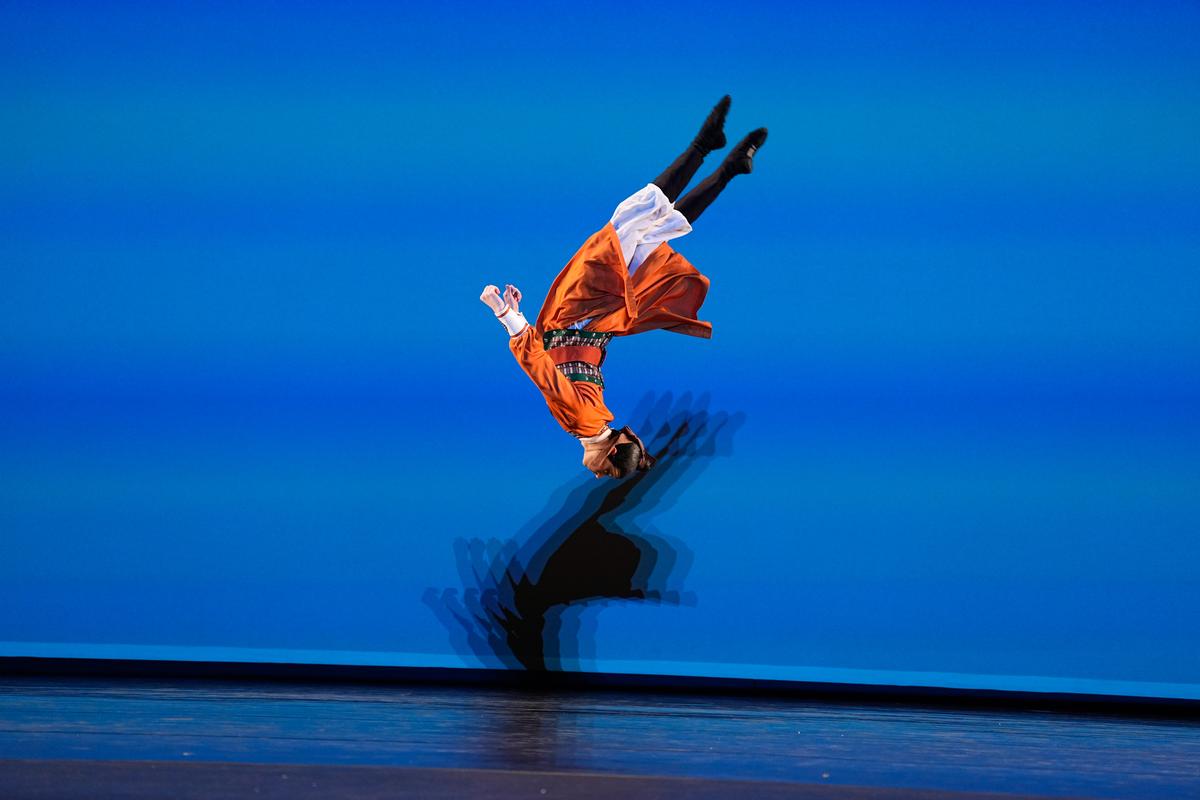
“I think truly good art can evoke kindness in people’s hearts,” said Carol Huang, two-time gold award winner of past competitions in the junior division, who is participating in the adult division for the first time this year.
“It’s not just entertainment that serves as a diversion which lasts the duration of a performance, it can give someone a lasting impression a positive influence,” she said. “It can lead one to think about what true human culture is, and understand traditional culture. And afterwards, they have their own thoughts: what kind of culture is a good culture?”
For Ms. Huang, dance is a moral art, and one that mirrors life.
“In art, as in life,” she said, “when you mend your problems you improve—both morally and physically.”
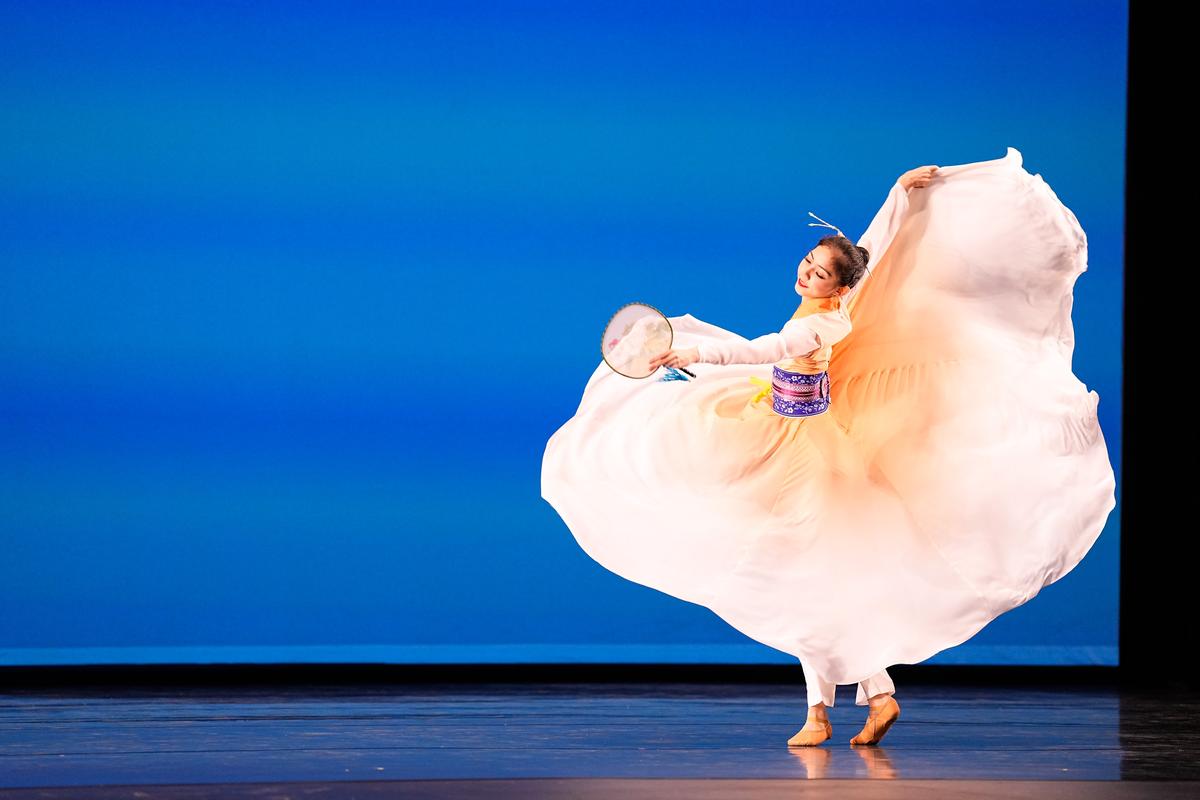
“Chinese culture is also traditional,” said David Xiao, who is also participating in the competition for the third time. “Our goal from this dance is to show everyone the traditional values of Chinese culture, and that humans and the heavens are connected. So hopefully, people can understand more about this aspect.”
Roy Chen, a principal dancer at Shen Yun Performing Arts, the world’s premier classical Chinese dance company, is also an instructor of classical Chinese dance.
“Your morality and character is conveyed when you’re onstage,” he explained, and he sees how it plays out every day in the classroom. “When you look at a dancer’s movements, you can see what kind of artist he is, and you can see what kind of person he is.”
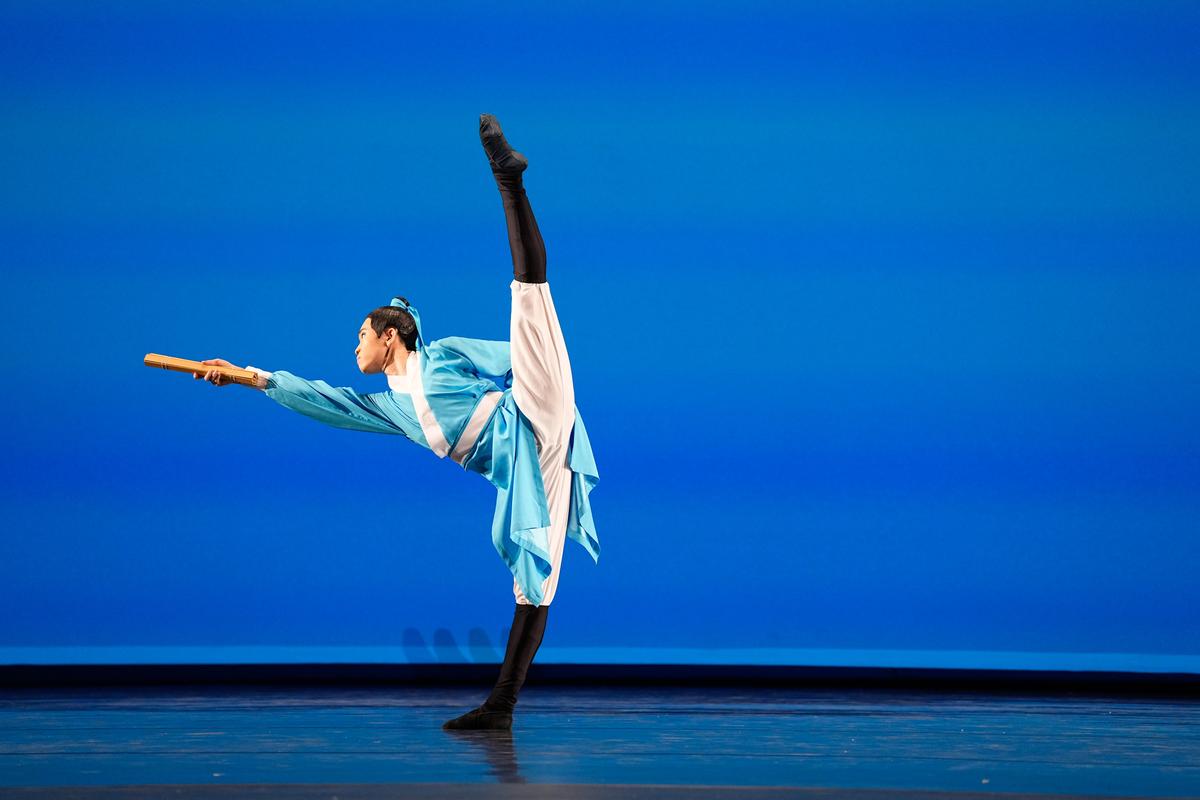
If someone normally does things in a careless way and lacks attention to detail, it often shows up in their dance form too, he said as a simple example. Your mindset and worldview affect your idea of beauty, which is what you are presenting to the audience when you take to the stage—and understanding this is often one of the biggest gains dancers participating in the competition report.
“Everyone’s upbringing, environment, outlook, philosophy, and sense of aesthetics is different. So even if they portray the same character, the way they do it will definitely be different,” he said. “Everyone has their own interpretation, and expression of it. So you can look at which is most beautiful, most grand, and you can learn from each other.”
The ancient art form includes the requirement of using movement “to express a dancer’s inner world.” Done correctly, one’s feelings drive the body into motion.
“Classical Chinese dance is really something profound; it contains great meaning and depth, but also such breadth that it can be used to portray characters, and every emotion. It can do so many things—it can even coney the image of God. That’s not something every dance form can do,” he said.
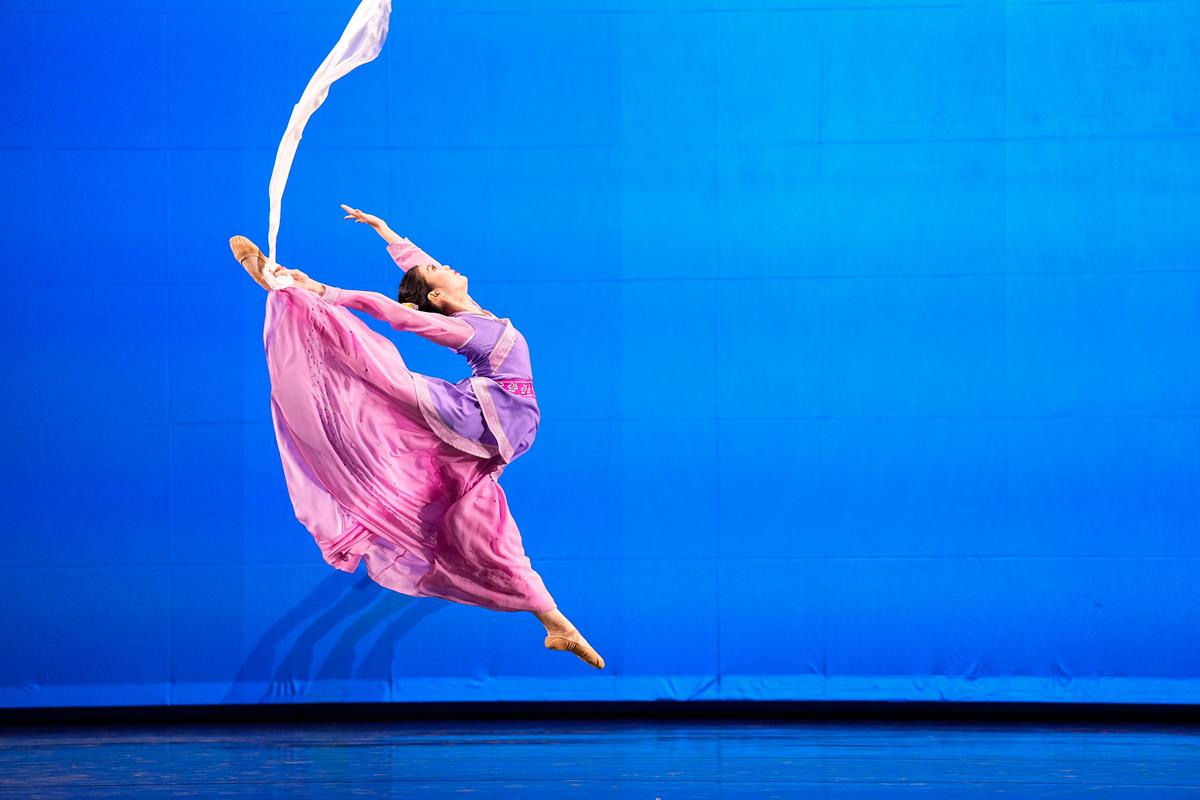
Daniel Liang, a student at Fei Tian Academy of the Arts, portrayed the military general Guan Yu in “Eternal Loyalty.”
Guan Yu was indeed renowned for his loyalty, to Liu Bei, who later became the founding emperor of the Shu Han dynastic state. The soldier was captured by enemy warlord Cao Cao, who tried, unsuccessfully, to persuade Guan Yu to serve under him.
Guan Yu never changed his loyalties, and later fought his way out of enemy war camps to return to Liu Bei’s service, but he found respect for Cao Cao even though he was his enemy.
“I wanted to portray ... Guan Yu’s own heart,” Daniel said. He wanted to show that one could still respect one’s enemy as a person, while adhering to your values. Everyone, even your enemies, “still has a good part.”
